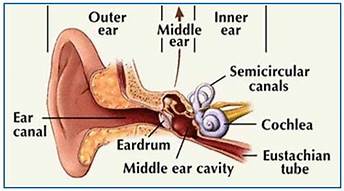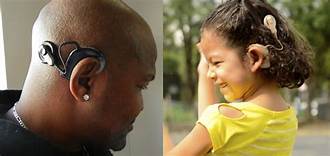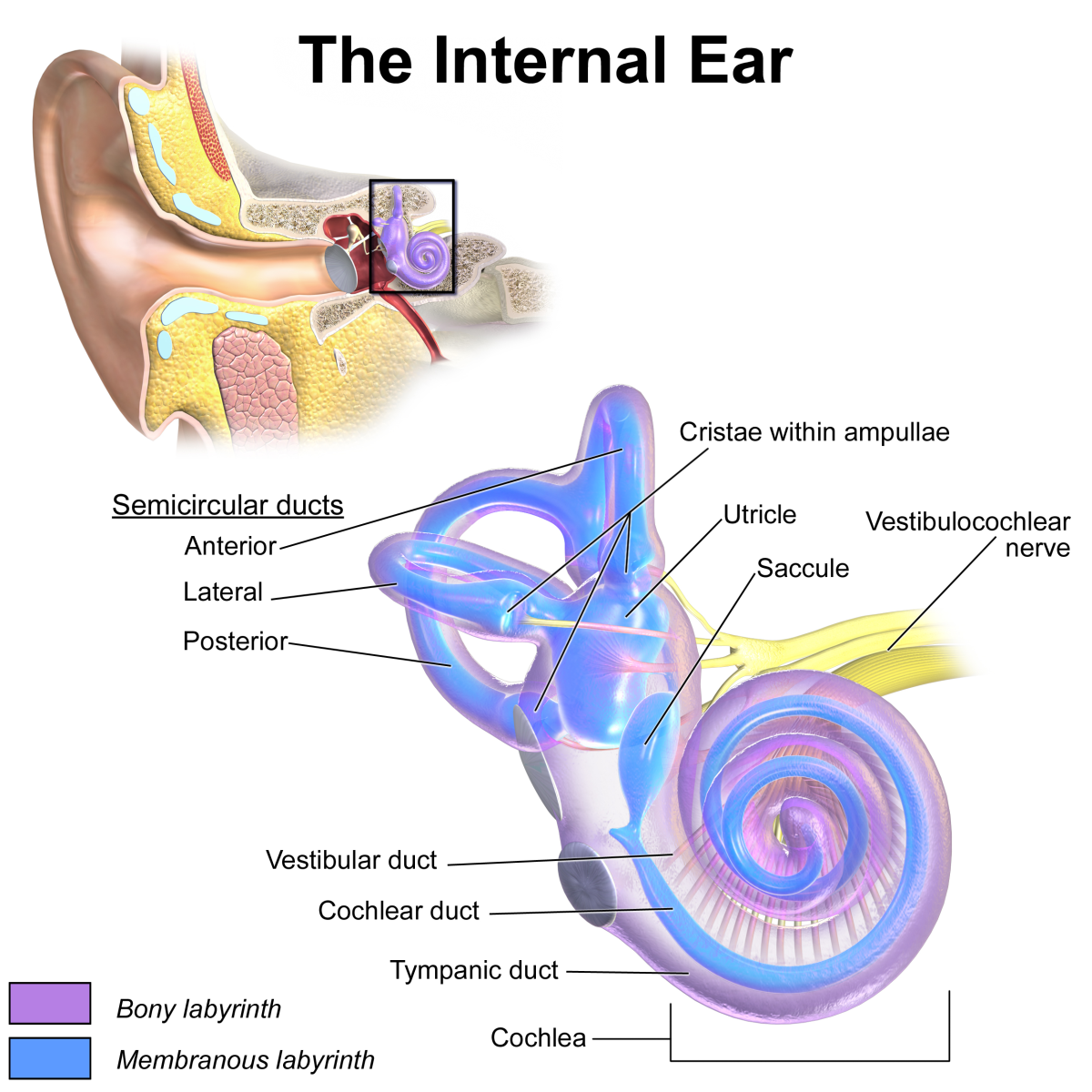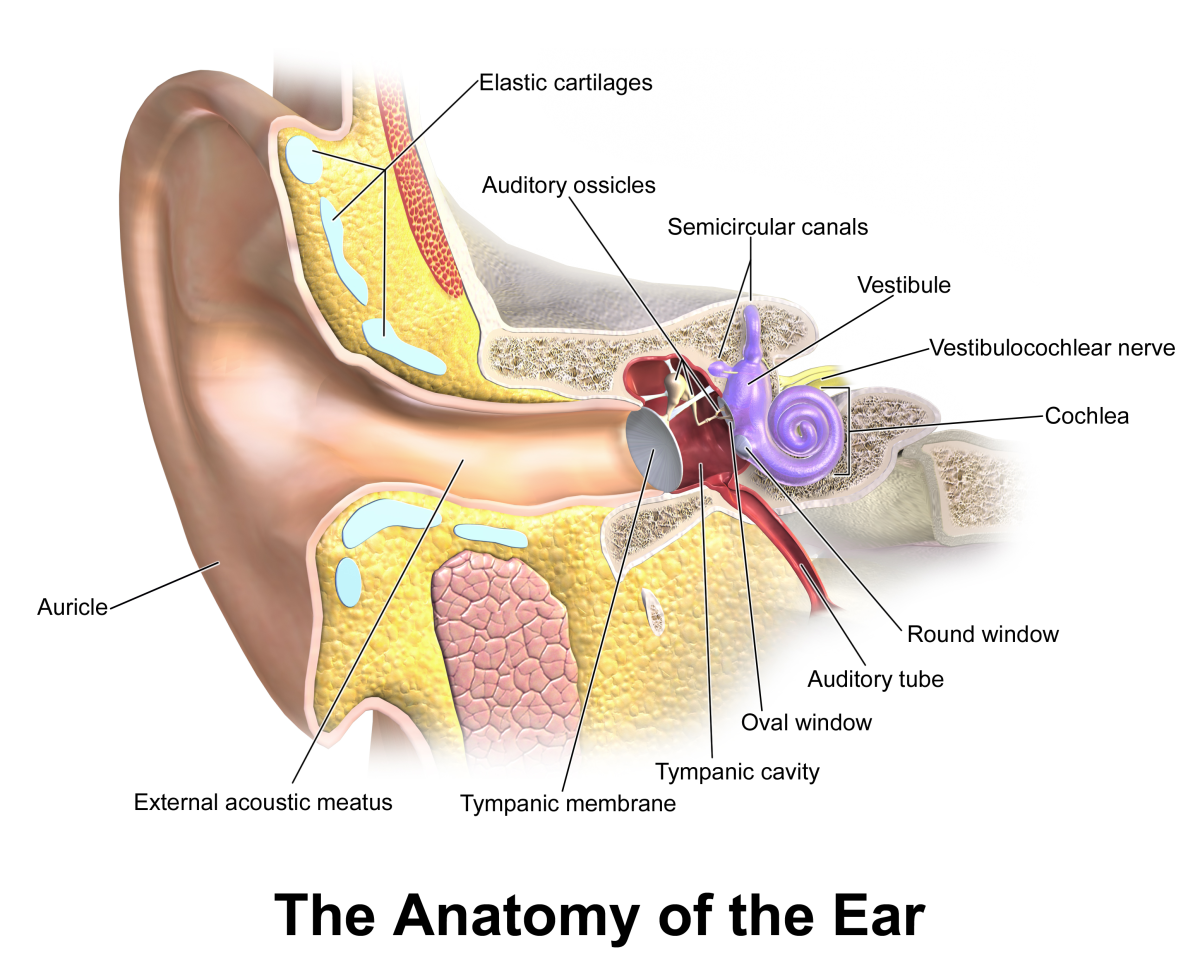Are Cochlear Implants For You?
Cochlear Implant
First, let me say that cochlear implants are a personal choice. Some chose cochlear implants and some do not. Either choice is personal and perfectly alright. Research the options and determine the best method to treat your hearing loss that fits your lifestyle.
A cochlear implant is a device that is inserted into your cochlea and implanted under the skin. The device sends electric impulses to your brain stimulated by sound. Your brain interprets these impulses as sound and you learn how to perceive the speech sounds from those impulses.

Sound typically enters the ear through the ear canal and travels to the eardrum. The eardrum vibrates in response to the sound and makes the little bones in the middle ear vibrate too. These bones help to push the sound waves into the cochlea via the
round window (and amplify them along the way). The sound waves then travel through the cochlea (the snail shell looking structure in the image) and transmit sound to the persons brain via the auditory nerve. Then the brain interprets those signals. All of these parts of the outer, middle, inner ear, and auditory nerve must be functioning for hearing to be normal.
Cochlear implants work for people who have a cochlea that is not working quite right. Often this means the tiny hair cells in the cochlea are bent, broken, or sheared. These hair cells (called inner and outer hair cells) help to transmit the sound waves through the cochlear to the auditory nerve.
People with Their Implants On

Electron Microscope Image of a Normal Cochlea and Damaged Cochlea

Why Are My Hearing Aids Not Enough?
Cochlear implants can be an option for people who have severe hearing loss from cochlea damage and who receive little to no help from hearing aids. Hearing aids amplify sound, but cochlear implants bypass the damaged portions of the inner ear to deliver sound directly to the auditory nerve. This is why cochlear implants may work better than hearing aids for many people.
Parts of a Cochlear Implant
Cochlear implants use a sound processor that fits behind the ear (looks like a large hearing aid and has a coil that uses a magnet to connect to the internal components). The processor captures sound transmits those signals to the receiver implanted under the skin behind the ear. The receiver sends the signals to the electrodes implanted in the cochlea. How does a cochlear implant work? The implant cannot make you hear 100% normally again, but the implant can help with sounds. Most people can understand speech better than they did with a hearing aid. The cochlear implant helps you to identify sounds like the telephone ringing, doorbells, alarms, and the baby crying. Most people can identify speech better, but may still have difficulties with background noise.
How Do Cochlear Implants Work?
Benefits and Risks of Cochlear Implants
Benefits
| Risks
|
|---|---|
Hearing speech at a nearly normal volume
| It is a surgery and complications of any surgery can occur these could occur but are not limited to (bleeding, infection, vertigo, side effects from medications).
|
Understand speech with less lip reading
| Nerve damage can occur (your middle ear is very small and the nerves that run through these are close to where the implant needs to go). Side effects of nerve damage can include a change in your sense of taste, weakness or paralysis of your face, or vertigo.
|
Easier to talk on phone, listen to the television, and understand movies than before
| Loss of the hearing you have left, ringing in your ears also called tinnitus or leaks in the fluid around the brain. Meningitis, while rare, can occur. Meningitis is a serious complication.
|
While all people have different experiences with the cochlear implant surgery and differing results most people find some benefits including:
Watch a Simulation of a Cochlear Implant Surgery
This content is for informational purposes only and does not substitute for formal and individualized diagnosis, prognosis, treatment, prescription, and/or dietary advice from a licensed medical professional. Do not stop or alter your current course of treatment. If pregnant or nursing, consult with a qualified provider on an individual basis. Seek immediate help if you are experiencing a medical emergency.
© 2020 Kari Lane








